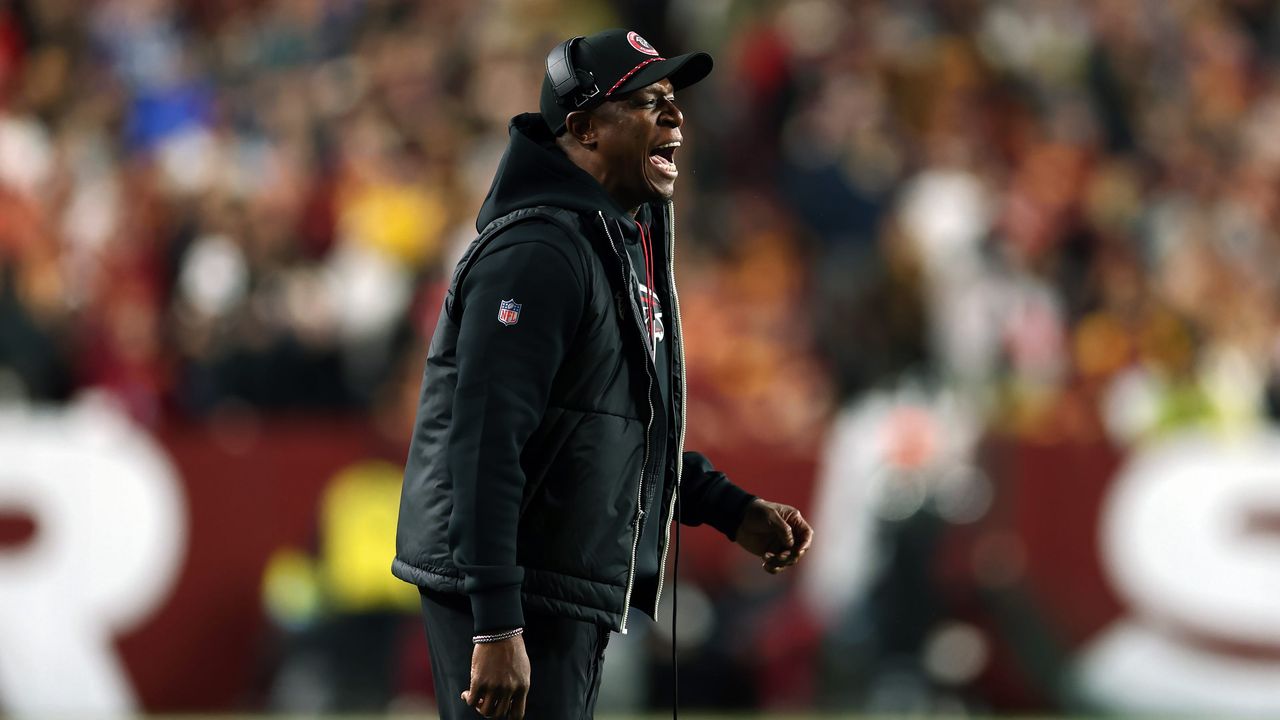Raheem Morris' Timeout Missteps Cost Falcons Season
Falcons coach Raheem Morris' timeout decisions may have doomed their playoff chances in a crucial overtime loss to the Commanders.

Raheem Morris' Timeout Missteps Cost Falcons Season
The Atlanta Falcons faced a crucial moment in their NFL season as their head coach, Raheem Morris, made a controversial decision that may have affected their chances for the playoffs. In a dramatic overtime loss to the Washington Commanders, the Falcons failed to capitalize on key opportunities, raising questions about Morris's clock management strategy.
A Critical Moment
In the final minute of the fourth quarter, after a game-tying touchdown from rookie quarterback Michael Penix Jr., the Falcons' fate rested heavily on Morris's shoulders. With 40 seconds remaining in the game and two timeouts available, the Falcons had the chance to set up for a game-winning field goal. They needed to act quickly, having just made a significant 25-yard connection from Penix to wide receiver Darnell Mooney.
However, rather than calling a timeout to manage the clock, Morris opted not to stop it, a decision that would prove costly. As the seconds ticked away, the team struggled to line up and execute plays, eventually leading them to attempt a 56-yard field goal that fell short as regulation expired.
Morris Explains His Decision
After the game, Morris reflected on his decisions, stating, "In hindsight, it could have been a good decision or a better decision to take that timeout." He expressed hope that his players could operate faster without stopping the clock. This line of reasoning wasn't new; he had made similar choices in the first half, where timeout management also came into question.
Penix echoed that trust, saying, "We all trust Coach's judgment on that," but even his confidence couldn't shield the Falcons from the implications of Morris's decisions.
The Consequences of Inaction
The failure to stop the clock after critical plays not only affected their ability to set up for field goals but also handed control of the NFC South back to the Tampa Bay Buccaneers. With a loss to the Commanders, the Falcons found themselves needing help from other teams in order to secure a playoff spot.
Riley Patterson, the Falcons' kicker, ultimately came up short in his final attempt just as the game went into overtime. This defeat underscored Morris's tough learning curve in his first year as head coach, as he grappled with strategic decision-making that could affect outcomes enormously.
Looking Ahead
As the Falcons gear up for their next matchup against the Carolina Panthers, they know they require a win along with a loss from the Buccaneers to clinch the division. With the stakes higher than ever, Morris must refine his approach to game management and ensure he leverages every opportunity to secure a victory.
Ultimately, this game's outcome raises critical questions about time management in high-pressure situations and reflects the challenges faced by a coach leading both young talents like Penix and seasoned veterans.
The Falcons’ postseason hopes now hinge not just on individual quarterback performances but on Morris's capability to lead effectively in the heat of the moment.
With their current record of 8-8, the upcoming clash against the Panthers is both pivotal and unforgiving. The team stands at a crossroads, where their season hangs in the balance, demanding clarity of strategy from their head coach, and a return to fundamental football principles. The time to act is now, and the pressure is on.



